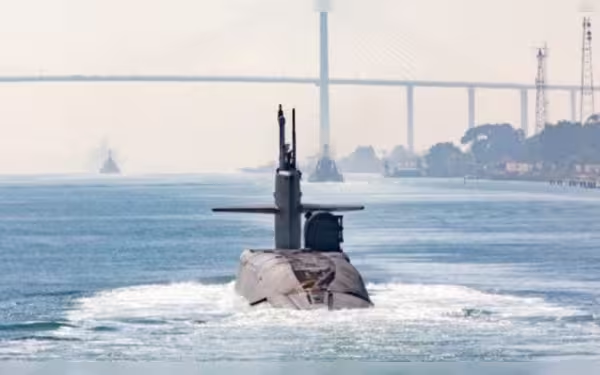Saturday, November 16, 2024 05:51 PM
Israel's Military Options Against Iran Escalate Amid Rising Tensions
- Israel considers military strikes against Iran's nuclear facilities.
- U.S. advises caution to Israel regarding military actions.
- Former leaders debate the best response to Iranian aggression.
 Image Credits: arabnewspk
Image Credits: arabnewspkIsrael weighs military options against Iran as tensions rise, with U.S. urging caution amid potential retaliation.
In recent weeks, tensions between Israel and Iran have escalated dramatically, particularly following a significant missile attack by Iran on Israel. This incident has reignited discussions about the potential for military retaliation from Israel, a nation that has long viewed Iran as a primary threat. The stakes are high, not just for these two countries, but for the entire Middle East and beyond.
Israel's response options are varied and complex. They range from symbolic military strikes aimed at specific targets to more severe actions that could cripple Iran's vital oil industry or its nuclear program. The situation is further complicated by the geopolitical landscape, as any military action could have far-reaching consequences, not only for Israel and Iran but also for global oil markets and international relations.
As Israel's defense minister prepares for discussions with U.S. officials, the Pentagon has postponed a crucial meeting, indicating possible disagreements on how to approach the situation. President Joe Biden has advised Israel against targeting Iran's nuclear facilities and oil industry, emphasizing the need for caution. This reflects a broader concern that any military action could lead to a cycle of retaliation, escalating tensions even further.
Historically, Israel and Iran have engaged in a shadow war, with Israel conducting operations against Iranian-backed groups in the region. However, direct confrontations have been rare until recently, when attacks from Hamas and Hezbollah, both supported by Iran, prompted a shift in Israel's military posture. Following the missile barrage from Iran, Israeli Prime Minister Benjamin Netanyahu has vowed a strong response, stating that Iran has made a “big mistake.”
Israel's military options include targeting Iranian government buildings, military bases, and nuclear facilities. However, executing such strikes poses significant logistical challenges. Israel would need to navigate over 1,500 kilometers of airspace, potentially facing hostile defenses along the way. Experts warn that any military action could provoke Iranian retaliation, not just against Israel but also against U.S. forces in the region.
Former Israeli leaders are divided on the best course of action. Ehud Olmert, a former prime minister, suggests that a limited strike on military targets would suffice to demonstrate Israel's capabilities without provoking a full-scale conflict. In contrast, Yair Lapid advocates for targeting Iran's oil infrastructure, arguing that it would send a strong message to the Iranian regime about the consequences of its aggression.
As the situation unfolds, it is clear that Israel faces a difficult decision. The balance between demonstrating military strength and avoiding unnecessary escalation is delicate. The international community watches closely, aware that any misstep could lead to broader conflict in an already volatile region. Ultimately, the choices made in the coming days will not only shape the future of Israeli-Iranian relations but could also redefine the geopolitical landscape of the Middle East.













